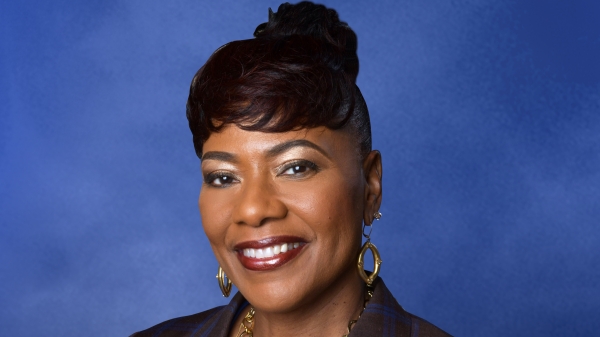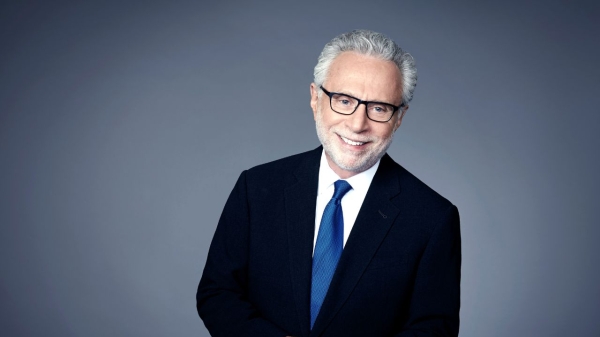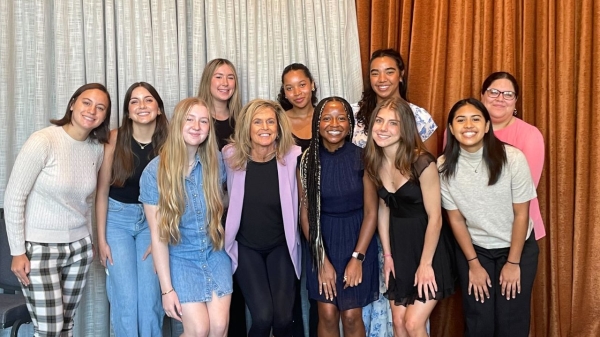ASU researcher explains the importance of independents in the NH primary

Arizona State University’s Dave Daugherty, associate director of the Morrison Institute for Public Policy.
The New Hampshire primary can be difficult to predict because independent voters — who make up nearly half of registered voters there — can participate in either party’s primary, giving them the ability to sway either nomination. Arizona State University’s Dave Daugherty, associate director of the Morrison Institute for Public Policy, researches the independent voter phenomenon.
Question: Why are independent voters so important in New Hampshire?
Answer: Independent voters are a growing part of the electorate and important to every state. New Hampshire has a tradition of independent voters — currently 44 percent of registered voters there — so they are always a critical part of the electorate, particularly during the presidential primary. Because of that, turnout among independents in New Hampshire may be higher than in other states, like Arizona, and they may wield greater influence.
Q: Is there any one unifying trait that connects all independent voters?
A: Unaffiliated voters do not hold together philosophically — they are not a “party.” Some individuals choose to be independents because they believe the organized parties have become too moderate. Others choose to be independent because neither party comes close enough to reflecting their personal political philosophy to suit them. They are a hodgepodge of individuals who, for a wide variety of reasons, do not identify with any of the organized political parties.
Q: Why have the percentages of independent voters grown nationally, and does that explanation apply to Arizona, too?
A: During the past decade (perhaps longer) the two major political parties have become less flexible in their positions on numerous issues. Candidates are “required” to take the party position on most or all these issues to be nominated and elected. However, many voters have mixed positions on the issues. For these voters, neither political party reflects their personal political philosophy. As a result, they can’t, or won’t, attach themselves to either political party and instead become independents.
Q: Are many of these voters truly independent, or do they still tend to vote for the party they left?
A: In Arizona some independents are independent in name only and behave almost exactly — in their political philosophy and voting behavior — as either Democrats or Republicans. Our research indicates about 12 percent of independents are actually Republicans and about 14 percent are really Democrats. The remainder is independents with a mixed set of beliefs that don’t reflect the political philosophy of either party. However, many of these voters won’t necessarily share the same mixed set of beliefs.
Q: How much effort should candidates devote to independent voters compared with voters in their party? Are independent voters harder to reach and convince?
A: Candidates need to be careful when pursuing independent voters. In Arizona, for example, there appears to be an emerging group among independents that is fiscally conservative yet socially liberal. There is enough of this group of independents that they are worth pursuing. However, to appeal to these voters, the candidate will alienate both left-wing Democrats and right-wing Republicans. “Appealing to the base,” that tried-and-true political strategy, means having little appeal to most independents, other than those who are actually Democrats or Republicans calling themselves independents. And not all independents are moderates — although some are. But taking moderate positions on issues will cost the candidate votes among their base. In this environment of extremism, a candidate must pursue independents at their potential peril.
For more: The Arizona Independent Voter Study identifies the voting patterns of the state’s unaffiliated voters and is the result of a survey of 2,000 registered voters in the state. Find it here.
More Law, journalism and politics

Peace advocate Bernice A. King to speak at ASU in October
Bernice A. King is committed to creating a more peaceful, just and humane world through nonviolent social change.“We cannot…

CNN’s Wolf Blitzer to receive 41st Walter Cronkite Award for Excellence in Journalism
Wolf Blitzer, the longtime CNN journalist and anchor of “The Situation Room With Wolf Blitzer,” will accept the 41st Walter…

Cronkite School launches Women Leaders in Sports Media live-learn program
Women in a new sports media program at Arizona State University got a solid game plan from a sports veteran at an Aug. 20 welcome…